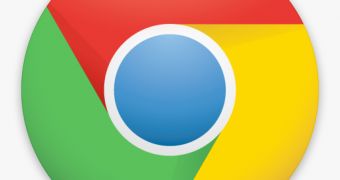Google introduced the first Chromebooks, notebooks running Chrome OS, at its Google I/O developer conference. The first two devices are hitting the stores in several countries in mid summer. As far as netbooks/ultraportables go, the two devices from Samsung and Acer are up to spec and priced reasonably, but the far more interesting than the hardware is the software running on it.
This will be Chrome OS' big debut, the bold new operating system that's been announced about two years ago is ready for action.
But is the world ready for it, Google asks in the promo video showcasing Chrome OS. Because these are not typical notebooks.
It may be gimmicky but using "Chromebook" make sense since, thanks in large part to the operating system, they change the way people think about computers.
"With a Chromebook you won’t wait minutes for your computer to boot and browser to start. You’ll be reading your email in seconds. Thanks to automatic updates the software on your Chromebook will get faster over time," Linus Upson, Vice President of Engineering at Google and Sundar Pichai, Senior Vice President, Chrome, wrote.
"Your apps, games, photos, music, movies and documents will be accessible wherever you are and you won't need to worry about losing your computer or forgetting to back up files," they explain.
Because Chrome OS really is just the browser, there is nothing to load when booting up, users should be ready to open a webpage or app in seconds.
What's more, again, because it's just a browser, all of the files and applications you use are always there and accessible from anywhere and any computer.
There is nothing linking you to the actual device, not even your preferences and settings since these get synced to the cloud as well. The devices are completely replaceable and all of the experience is linked to your profile, which is in the cloud, rather than the physical device.
"Chromebooks will last a day of use on a single charge, so you don’t need to carry a power cord everywhere," Google continued to tout Chrome OS' advantages.
"Chromebooks have many layers of security built in so there is no anti-virus software to buy and maintain. Even more importantly, you won't spend hours fighting your computer to set it up and keep it up to date," it added.
Clearly, there is a lot to like. Anyone that's been tasked as the family support guy would be happy to have something to offer to their parents that won't break down no matter what happens and that won't need constant attention and updates.
Of course, all of this comes with a price, there are compromises to be made, especially at this early stages. No matter how hard Google tries to convince you, the web is not yet ready to take on native apps.
There are a lot of great alternatives out there on the web, sometimes even better ones, but there are still plenty of cases when native apps are not only much better, they're the only choice.
But this is a chicken versus egg problem, if there aren't users and companies pushing web developers to move forward there won't be any great web apps. But with no apps, users can't be convinced to drop the desktop altogether.

 14 DAY TRIAL //
14 DAY TRIAL //